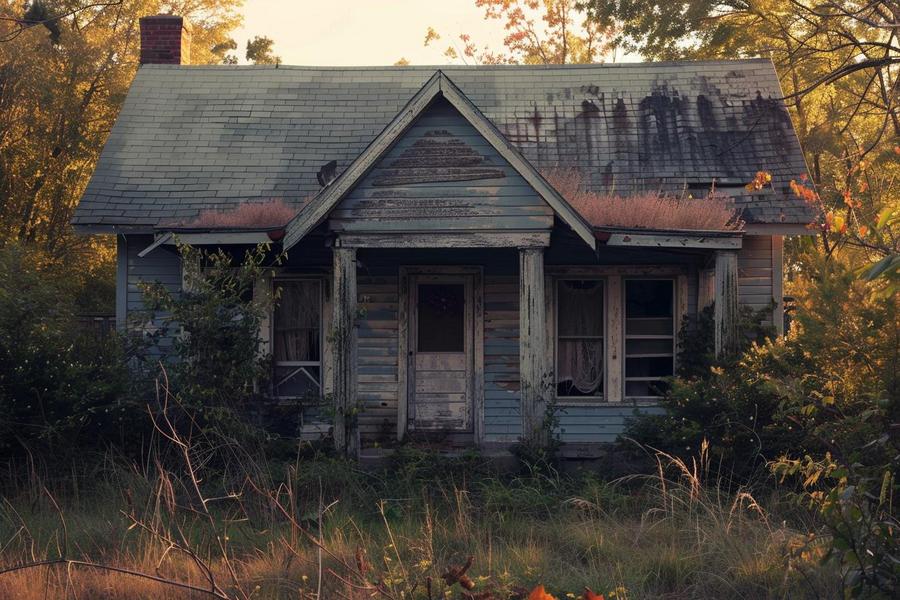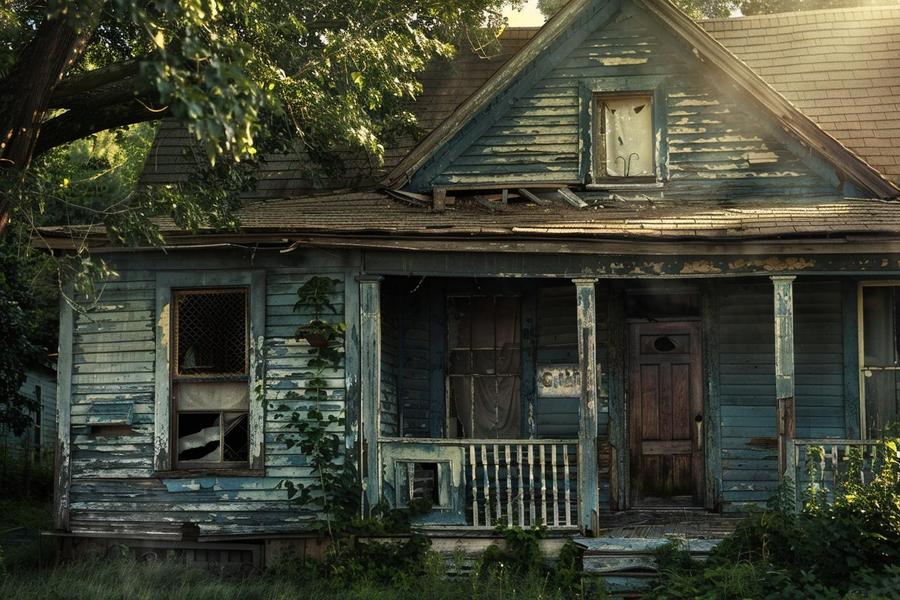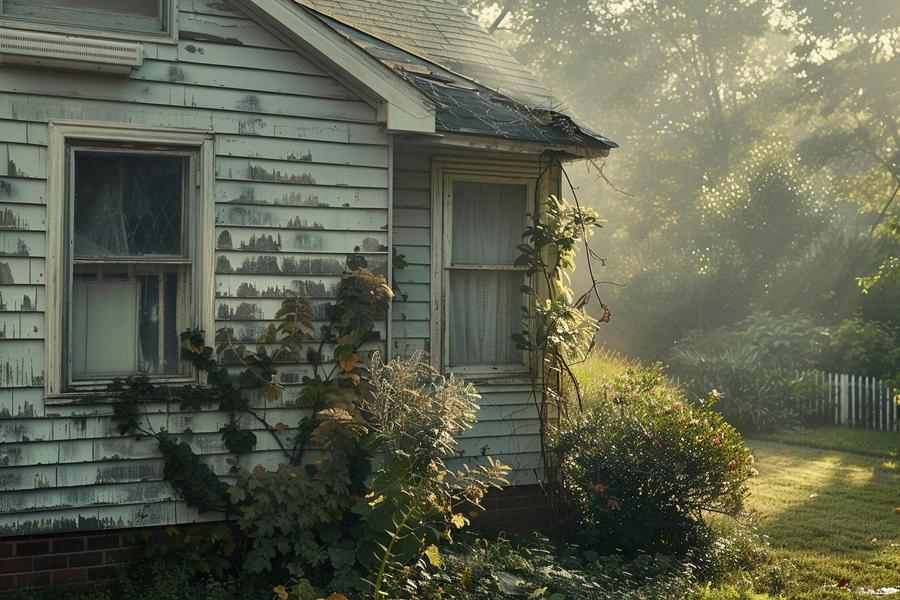Selling a house with water damage? Yeah, it can feel pretty overwhelming at first. But here’s the thing—it’s definitely doable. You just need the right game plan, whether that means fixing things up or going the as-is route. The trick is figuring out what works for your situation. If you need to sell my house fast in Richmond, let me walk you through what actually matters: the hit to your home’s value, what you’re legally required to tell buyers, which repairs are worth it, and how to market the place without scaring everyone off.
Quick Takeaways:
- Always disclose water damage to avoid legal trouble and build trust.
- Prioritize structural and safety repairs over cosmetic updates.
- Selling as-is to a cash buyer is faster but often for less money.
- Price based on repair costs, market trends, and buyer expectations.
- Professional assessments help with accurate pricing and repairs.
- Market honestly—highlight positives and provide repair documentation.

What Should You Prepare for When Selling a House with Water Damage?
How Does Water Damage Affect Your Home’s Value?
From what I’ve seen, water damage typically knocks about 15–20% off a home’s value. Sometimes more, sometimes less. It really depends on how bad things got. The thing is, buyers get spooked—they start imagining rotting joists behind the walls or mold creeping through the insulation. Can you blame them?
Your best bet is to figure out exactly what caused the damage (was it that burst pipe last winter? Or maybe ongoing roof leaks?). Get some repair estimates. Check if anything’s actually unsafe. Once you know what you’re dealing with, you can decide: fix it now or drop the price and let the buyer handle it.
The Importance of Disclosing Water Damage
Look, being upfront about water damage isn’t just the right thing to do—in most places, it’s the law. And honestly? Buyers appreciate honesty more than you might think.
Write everything down. When did the damage happen? What did you fix? Who did the work? Keep those contractor receipts and reports handy. Some sellers worry this will scare buyers away, but I’d argue the opposite—transparency actually seems to make cautious buyers more comfortable. Plus, it keeps lawyers out of your life later on.
Preparing Your Home for Sale After Water Damage
First things first: you’ve got to dry everything out. I mean really dry it. Rent some industrial fans and dehumidifiers if you haven’t already. That musty smell? It’s got to go.
Then comes the detective work. Check for mold—behind baseboards, in the attic, wherever water might have traveled. If you find any, don’t mess around. Call a mold remediation company. After that, tackle the bones of the house: any structural damage needs attention before you even think about fresh paint.
- Dry and ventilate affected areas quickly.
- Inspect for mold and hire remediation if needed.
- Repair structural damage first.
- Clean thoroughly and remove odors.
- Gather all repair documentation.
Do You Have to Disclose Water Damage When Selling Your House?
Understanding Legal Requirements
Short answer: yes, you probably have to tell buyers about water damage. Most states require it. A few don’t, but even then, staying quiet could land you in hot water (no pun intended) if problems pop up after the sale.
The rules vary by state though. California? Super strict. Alabama? Less so. But regardless of where you live, disclosure tends to work in your favor—buyers trust sellers who lay everything on the table.
How to Effectively Disclose Past Water Damage
Don’t just scribble “had water damage” on the disclosure form and call it a day. Tell the story. That pipe burst in January 2023. You called ABC Plumbing the next day. They fixed the pipe, replaced the damaged drywall, and a mold inspector gave you the all-clear two weeks later.
Attach copies of invoices and inspection reports. If you worked with insurance, include that documentation too. For more guidance on selling properties with issues, We Buy Ugly Houses has some useful resources on handling damaged homes.
Can You Sell a House As-Is with Water Damage?
Absolutely. Plenty of cash buyers actually look for these kinds of properties. They’re usually investors who know what they’re getting into and have contractors on speed dial.
Now, will you get top dollar? Probably not. But if you’re thinking “I just want this headache gone,” then as-is might be your answer.
The Pros and Cons of Selling As-Is
The good: It’s fast. Really fast. No dealing with contractors or permits. No watching your savings disappear into repairs. Cash buyers often close in a week or two.
The not-so-good: You’re leaving money on the table. Sometimes a lot of it. And your buyer pool shrinks—most families getting mortgages won’t touch an as-is water-damaged house. If you need to sell my house fast in Norfolk, though, speed might matter more than squeezing out every last dollar.
Finding Cash Buyers for Water-Damaged Homes
Start online—there are tons of “we buy houses” companies out there. Some are great; others… less so. Do your homework. Real estate agents who work with investors can also connect you with legitimate cash buyers.
When you reach out, be straight about the damage. Send photos. The serious buyers won’t be scared off—they’ll appreciate knowing what they’re walking into.

What Repairs Should You Consider Before Selling a Water-Damaged Home?
Essential Repairs vs. Cosmetic Fixes
Here’s my take: forget the granite countertops. If you’ve got water damage, buyers care about one thing—is this house going to fall apart?
Fix the roof if it’s leaking. Shore up any foundation issues. Replace damaged plumbing. These aren’t sexy repairs, but they’re what actually matter. That avocado-green bathroom? It can wait.
Tips for Cost-Effective Repairs
Get multiple quotes—prices can vary wildly. But don’t just go with the cheapest option. A friend of mine did that once, and the “fixed” leak came back six months later. Not fun.
Consider which repairs prevent future damage. Fixing that gutter system might not seem urgent, but if it stops water from pooling against your foundation, it’s worth every penny.

How to Price a Home with Water Damage for Sale?
Assessing the Impact
Pricing gets tricky here. You might want to start with a professional appraisal—they’ll give you the real scoop on how much the damage affects value. Something I’ve noticed: buyers in flood-prone areas (looking at you, Houston) tend to be less freaked out by water damage than buyers in, say, Phoenix.
Pricing Strategies
Check what similar damaged homes sold for recently. Not asking prices—actual sale prices. Then do some math.
Example Calculation: Let’s say intact houses like yours go for $250,000. Your contractor quotes $30,000 for repairs. Buyers will probably want another $10,000 discount for the hassle and risk. Throw in $5,000 for closing costs, and you’re looking at maybe $205,000 as your as-is price. But this is just a starting point—your actual number could be quite different.
In coastal areas—if you’re trying to sell my house fast in Virginia Beach, for instance—factor in whether it’s hurricane season. Timing matters more than you’d think.
Where Can You Get Professional Assessments and Repair Services for Water Damage?
Choosing the Right Experts
Don’t just grab the first inspector you find on Google. You want someone who really knows water damage—not just the obvious stuff, but the sneaky problems that hide in crawl spaces and behind walls.
Ask them specifically about their experience with water damage assessments. A good inspector will poke around places you didn’t even know existed in your house. Their report becomes your roadmap for repairs and your ammunition for price negotiations.
Repair Services
For repairs, licensing matters. A lot. Your cousin’s friend who “does construction” might be cheaper, but when buyers ask for documentation, “Jimmy fixed it” doesn’t cut it.
Legitimate contractors provide warranties, proper invoices, and peace of mind. If you’re selling a house fast in Virginia, local contractors who know the area’s common water issues can be particularly helpful.
How to Market a Home with Water Damage to Potential Buyers?
Effective Marketing Strategies
Lead with the good stuff. Great neighborhood? Huge lot? Mention that first. Then, yes, acknowledge the water damage—but frame it as an opportunity. “Priced to account for needed repairs” sounds better than “water-damaged house.”
Photos matter. Show the damage, sure, but also show the potential. If you’ve already done some repairs, before-and-after shots work wonders.
Overcoming Buyer Concerns
Some sellers offer a home warranty to ease buyer nerves. Others provide detailed repair histories showing exactly what’s been fixed and what hasn’t. I’ve even seen sellers include contractor quotes for remaining work—it takes the guesswork out for buyers.
Want more ideas? Check out tips on attracting buyers—some strategies work regardless of your home’s condition.
FAQs About Selling a House with Water Damage
- Can I sell without fixing the damage? You can, though expect offers to reflect that. Cash buyers might still bite, especially if you need to sell my house fast in Chesapeake. Just be ready for a reality check on price.
- Will insurance cover repairs? Maybe? Regular homeowner’s insurance often covers sudden water damage (think burst pipes) but not gradual issues or floods. Flood damage usually needs its own policy. Check your coverage—you might be surprised either way.
- How long does it take to sell? Cash sales to investors? Could be done in 7-10 days. Traditional sales with repairs and financing? You’re looking at 2-3 months minimum, possibly longer if the damage scares off the first few buyers.
- Do I need a special inspection? It’s not required, but it’s smart. A water damage specialist will catch things a general inspector might miss. Think of it as insurance against future surprises.
Seller Checklist:
- Document all damage and repairs.
- Get professional assessment.
- Decide on repairs vs. as-is sale.
- Set a competitive price.
- Market with honesty and proof.
- Prepare for buyer questions.





